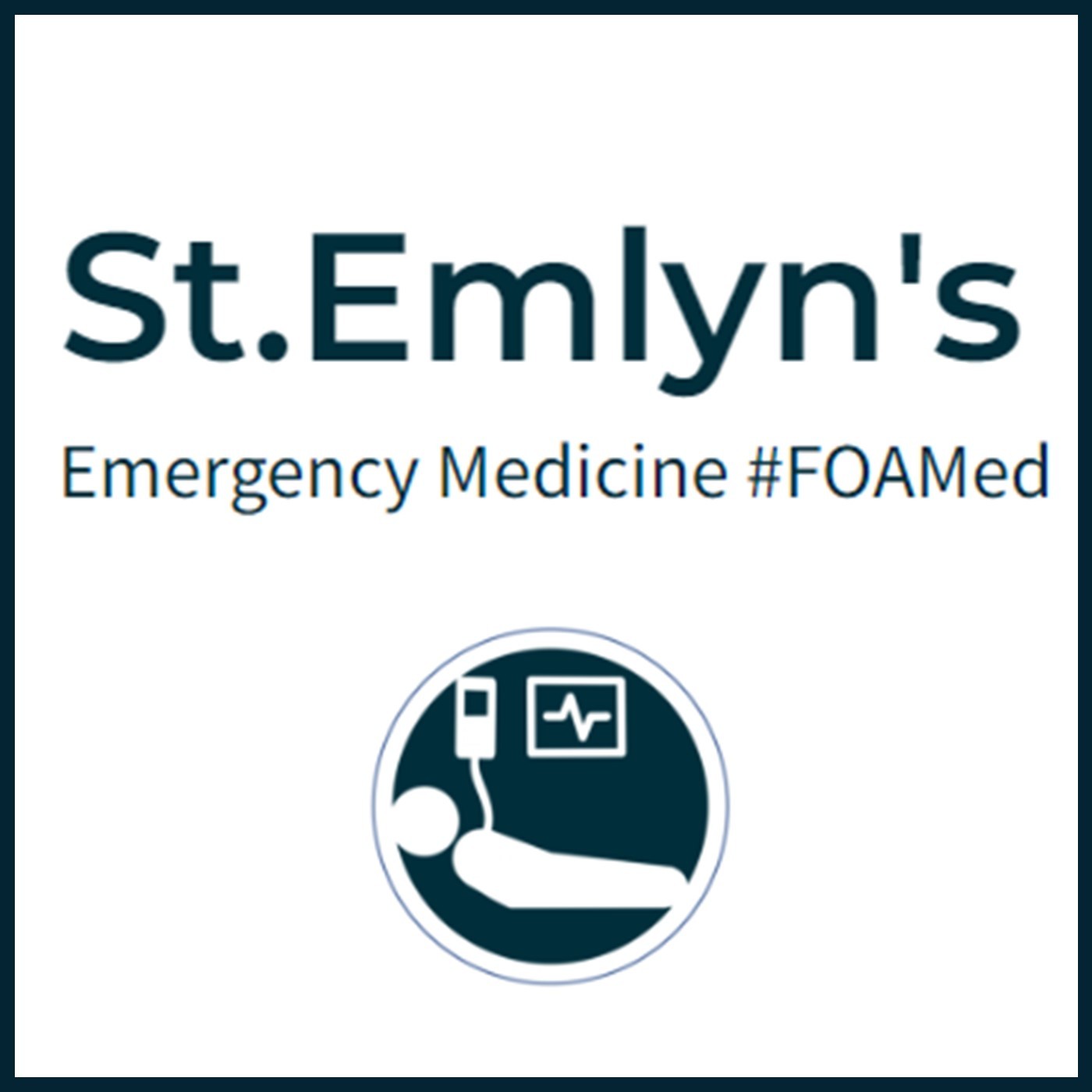
1.3M
Downloads
274
Episodes
A UK based Emergency Medicine podcast for anyone who works in emergency care. The St Emlyn ’s team are all passionate educators and clinicians who strive to bring you the best evidence based education. Our four pillars of learning are evidence-based medicine, clinical excellence, personal development and the philosophical overview of emergency care. We have a strong academic faculty and reputation for high quality education presented through multimedia platforms and articles. St Emlyn’s is a name given to a fictionalised emergency care system. This online clinical space is designed to allow clinical care to be discussed without compromising the safety or confidentiality of patients or clinicians.
Episodes

Tuesday Jul 07, 2015
Ep 52 - Managing grief in the ED with Liz Crowe
Tuesday Jul 07, 2015
Tuesday Jul 07, 2015
Navigating Grief: Lessons from the St Emlyns Podcast with Liz Crow
In a compelling episode of the St Emlyns podcast, host Ian Bidsel engages in a profound discussion with pediatric social worker Liz Crow about the intricacies of grief, especially within the healthcare sector. This episode was prompted by the tragic loss of John Hines, a respected member of the SMACC community known for his work as a motorcycle doctor. Liz shares her insights into the unique challenges faced by healthcare professionals when dealing with grief, both personally and professionally.
The Unique Nature of Grief
Grief is a deeply personal experience that varies significantly from person to person. Liz Crow emphasizes that there is no "normal" way to grieve; each individual's response is shaped by various factors, including age, personality, and prior experiences with loss. The podcast challenges the traditional Kubler-Ross model, which suggests a linear progression through five stages of grief. Liz argues that grief is a fluid process without a set path, characterized by an unpredictable mix of emotions.
Grieving in the Healthcare Profession
Healthcare professionals often encounter death and suffering, which can complicate their grieving process. The sudden death of John Hines highlighted the vulnerabilities even within a community accustomed to dealing with trauma. Liz and Ian discuss the common practice of compartmentalization among healthcare workers, where emotions are set aside to focus on the task at hand. While this can be a necessary coping mechanism, Liz warns against prolonged avoidance of emotions, as it can lead to long-term psychological issues.
The conversation underscores the importance of self-awareness and self-care. Healthcare professionals are encouraged to acknowledge their grief and seek support when necessary. This may involve adjusting work responsibilities or taking time off to process emotions. Liz stresses that compartmentalization should be temporary and that healthcare workers need to find safe spaces to express and process their grief.
Coping Strategies and Community Support
Liz explores various coping strategies that can help individuals navigate their grief. These include journaling, physical activity, creative expression, and talking with trusted friends or professionals. The key is to find what works best for each person. The SMACC and FOAMed communities provide a supportive network, especially through social media, which has facilitated shared experiences and mutual support. However, Liz notes that online interactions can sometimes lack the depth needed for processing complex emotions.
The podcast also addresses the public aspect of grieving, particularly when the person lost is a public figure like John Hines. For those who admired him, his death serves as a stark reminder of life's fragility. Liz and Ian discuss the discomfort of confronting mortality, especially when it involves someone perceived as larger than life. This public grieving can add another layer of complexity to personal mourning.
The Importance of Open Conversations About Grief
A significant theme in the podcast is the need for open dialogue about grief. Liz encourages listeners to communicate their feelings and to be open about their vulnerabilities. She highlights the cultural stigma against showing emotion, particularly among men, and calls for a shift in how we perceive emotional expression. The healthcare community, often valuing emotional resilience, may need to rethink its attitudes toward vulnerability.
Ian shares his personal experiences of feeling isolated in his grief, particularly in professional settings where the expectation is to maintain a façade of normalcy. Liz acknowledges this common experience and emphasizes the importance of finding supportive communities and being open about one's struggles.
Integrating Grief into Life
Liz suggests that instead of viewing grief as something to "move through," it should be seen as an experience to integrate into one's life. She uses the metaphor of grief as a wound that eventually becomes a scar—while the initial pain may subside, the impact of the loss remains. This perspective encourages compassion for oneself and others, recognizing that grief is an ongoing process rather than a problem to be solved.
For those struggling to cope, Liz recommends seeking professional help, particularly if grief begins to manifest as clinical depression. She distinguishes between the natural process of grief and the symptoms of depression, advising individuals to seek support if they find themselves unable to manage their emotions.
The Role of Professional Support and Self-Care
The podcast highlights the critical role of professional support and self-care for healthcare workers. Liz discusses the importance of accessing supervision and counseling, especially during personal crises. Self-care is not a luxury but a necessity, particularly for those in caregiving roles who may prioritize others' needs over their own. This can include taking time off, engaging in hobbies, or simply allowing oneself to grieve.
Moving Forward with the Community
As the SMACC and FOAMed communities continue to process John Hines' loss, this podcast serves as a reminder of the collective nature of grief and the importance of community support. The conversation provides valuable insights into the complexities of grieving, the significance of open dialogue, and the power of mutual support.
In conclusion, Liz and Ian emphasize that grief is a natural part of life, much like happiness. They encourage listeners to approach their grief with gentleness and understanding, acknowledging that there is no right or wrong way to grieve. Whether through professional support, personal coping strategies, or community connections, the journey through grief is unique to each individual. The key takeaway is to be patient with oneself and others, recognizing that healing is a gradual and ongoing process.
This episode of the St Emlyns podcast offers a deep exploration of grief, providing practical advice and emotional support for those navigating this challenging experience. The conversation encourages healthcare professionals and the wider community to engage openly with their emotions and to support one another through the journey of grief.

No comments yet. Be the first to say something!